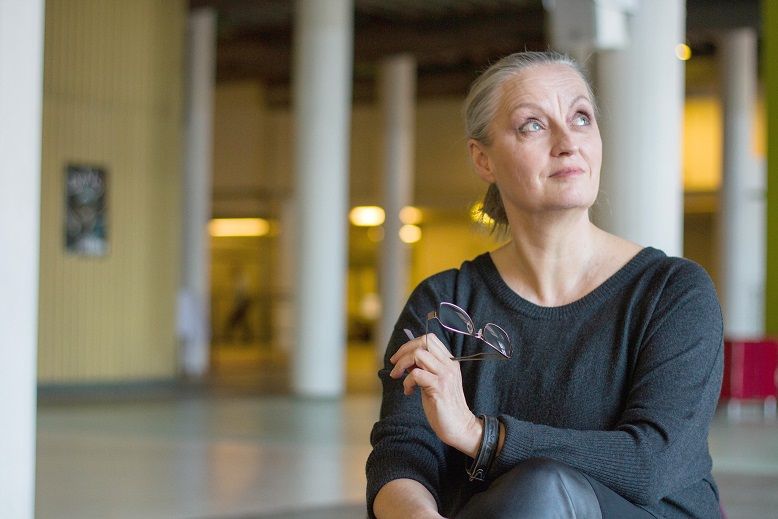Dansehallerne – previously Dansescenen and Dansens Hus – has been built to become the main Danish venue and home for the professional dance community.
In 2009, these institutions moved to Carlsberg on the edge of Vesterbro, and in 2012, they merged and Dansehallerne was established in what can only be described as a dream-performing and training venue, yet temporary but with a promise of a future permanent solution.
For Dansehallerne, the future seemed bright.
Trying times
A little over five years later, Carlsberg announced it had other plans. Dansehallerne would have to leave and face a difficult and uncertain future.
Today Dansehallerne and Carlsberg are again negotiating. What would become of Danish dance, and who could lead such an organisation into an era of unprecedented uncertainty?
Earlier this year, I interviewed Efva Lilja, the new artistic director of Dansehallerne.
And the uncertainty was dispelled.
Renewed optimism
The Swedish dancer, choreographer, artist and academic has taken a clear hold, and once again, Dansehallerne has a big ambition with a strategy to match.
In only a few months the brightness has returned.
What are you first impressions of Denmark?
I have experienced great warmth in coming here and am impressed with the open and sharing atmosphere. Whilst I can see the differences in how we fund and communicate, the divide is not huge. Denmark has chosen a cultural funding system that is closer in structure to Europe than to its fellow Nordic countries. In these first months, my focus has been to define a strategy that can take this into consideration and encourage a domestic future as well as an international one.
Can you tell us a little about this strategy?
Yes. Our goal and main focus is to be a leading platform for choreography in Europe by 2020. I see a clear potential among the people and the artists here. Through collaborations with the artists, the audience and the politicians, I believe we can build a strong profile within this strategy.
How would this strategy be possible without a building?
This building is amazing, but the real wealth is in the dancers and the artists that will bring alive the next four years. Of course a venue is important, and we are in negotiations to define the physical future of Dansehallerne, but the idea around any physical place is more important and is what will bring the organisation alive.
Is it fair to say you relish a challenge?
My reason for coming here was that I saw a challenge and an opportunity to contribute and develop a platform. On one hand you need a place in Denmark for the artists who have broken new ground and are already working, and on the other, you need to nurture development and experimentation.
So it will encourage innovation?
I am not here to impose my own aesthetic values. I am here to support those in favour of developing choreography as a relevant art-form based in time, sound, light and space, and in so doing, embrace other art-forms that provide a meeting place for innovation and critical debate. This I believe will create a strong network and an art that can fuel a society. Dansehallerne should be a platform for both developing and formed artists who want a closer and meaningful dialogue with their art and audience. My vision is to develop an institutional format that is a trigger to create this dialogue.
Would you agree that your CV reveals a great commitment to not only dance, but art as a social tool and means of existential investigation?
I hope so. I have a deep interest in people. Who are we, what we are? Why do we do what we do? How do we communicate? And what role does art play in contemporary life? For me it all stems from choreography within the dances I make, the drawings I create and the writings I form.
Why is the choreography so important?
Choreography represents the various layers that I wish to peel back to somehow reveal our human condition. Movement and choreography represent this peeling back process that expands the territories of art. I feel a great relevance for art within society and culture, and I believe and hope that I can make a positive difference for the existing and coming generations here at Dansehallerne.
Stuart Lynch is a theatre director and the headmaster at KFTS – Københavns Film & Teaterskole (teaterskolen.dk). He lives in Copenhagen with his wife and two children.














